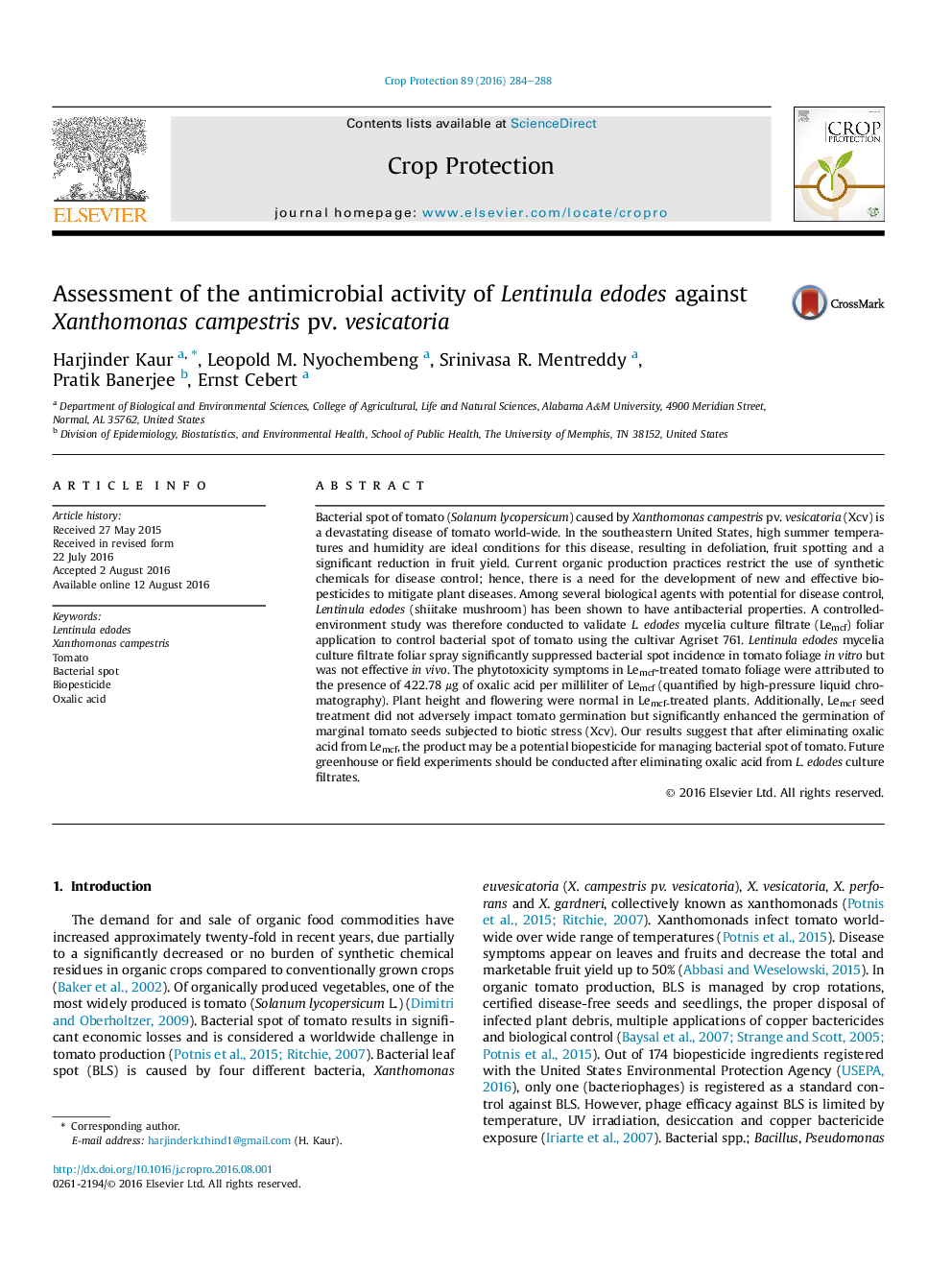| کد مقاله | کد نشریه | سال انتشار | مقاله انگلیسی | نسخه تمام متن |
|---|---|---|---|---|
| 6373204 | 1624298 | 2016 | 5 صفحه PDF | دانلود رایگان |
عنوان انگلیسی مقاله ISI
Assessment of the antimicrobial activity of Lentinula edodes against Xanthomonas campestris pv. vesicatoria
دانلود مقاله + سفارش ترجمه
دانلود مقاله ISI انگلیسی
رایگان برای ایرانیان
کلمات کلیدی
موضوعات مرتبط
علوم زیستی و بیوفناوری
علوم کشاورزی و بیولوژیک
علوم زراعت و اصلاح نباتات
پیش نمایش صفحه اول مقاله

چکیده انگلیسی
Bacterial spot of tomato (Solanum lycopersicum) caused by Xanthomonas campestris pv. vesicatoria (Xcv) is a devastating disease of tomato world-wide. In the southeastern United States, high summer temperatures and humidity are ideal conditions for this disease, resulting in defoliation, fruit spotting and a significant reduction in fruit yield. Current organic production practices restrict the use of synthetic chemicals for disease control; hence, there is a need for the development of new and effective biopesticides to mitigate plant diseases. Among several biological agents with potential for disease control, Lentinula edodes (shiitake mushroom) has been shown to have antibacterial properties. A controlled-environment study was therefore conducted to validate L. edodes mycelia culture filtrate (Lemcf) foliar application to control bacterial spot of tomato using the cultivar Agriset 761. Lentinula edodes mycelia culture filtrate foliar spray significantly suppressed bacterial spot incidence in tomato foliage in vitro but was not effective in vivo. The phytotoxicity symptoms in Lemcf-treated tomato foliage were attributed to the presence of 422.78 μg of oxalic acid per milliliter of Lemcf (quantified by high-pressure liquid chromatography). Plant height and flowering were normal in Lemcf-treated plants. Additionally, Lemcf seed treatment did not adversely impact tomato germination but significantly enhanced the germination of marginal tomato seeds subjected to biotic stress (Xcv). Our results suggest that after eliminating oxalic acid from Lemcf, the product may be a potential biopesticide for managing bacterial spot of tomato. Future greenhouse or field experiments should be conducted after eliminating oxalic acid from L. edodes culture filtrates.
ناشر
Database: Elsevier - ScienceDirect (ساینس دایرکت)
Journal: Crop Protection - Volume 89, November 2016, Pages 284-288
Journal: Crop Protection - Volume 89, November 2016, Pages 284-288
نویسندگان
Harjinder Kaur, Leopold M. Nyochembeng, Srinivasa R. Mentreddy, Pratik Banerjee, Ernst Cebert,